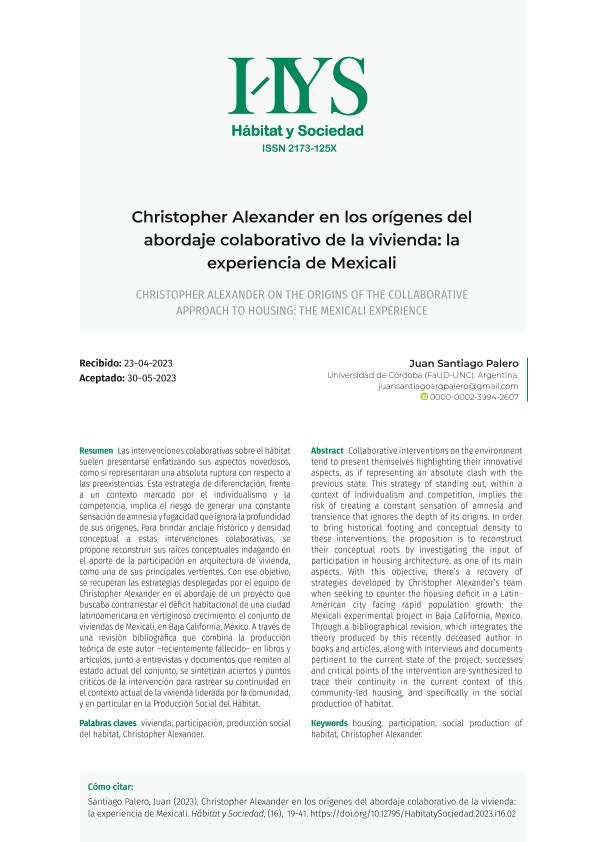Artículo
Las intervenciones colaborativas sobre el hábitat suelen presentarse enfatizando sus aspectos novedosos, como si representaran una absoluta ruptura con respecto a las preexistencias. Esta estrategia de diferenciación, frente a un contexto marcado por el individualismo y la competencia, implica el riesgo de generar una constante sensación de amnesia y fugacidad que ignora la profundidad de sus orígenes. Para brindar anclaje histórico y densidad conceptual a estas intervenciones colaborativas, se propone reconstruir sus raíces conceptuales indagando en el aporte de la participación en arquitectura de vivienda, como una de sus principales vertientes. Con ese objetivo, se recuperan las estrategias desplegadas por el equipo de Christopher Alexander en el abordaje de un proyecto que buscaba contrarrestar el déficit habitacional de una ciudad latinoamericana en vertiginoso crecimiento: el conjunto de viviendas de Mexicali, en Baja California, México. A través de una revisión bibliográfica que combina la producción teórica de este autor –recientemente fallecido– en libros y artículos, junto a entrevistas y documentos que remiten al estado actual del conjunto, se sintetizan aciertos y puntos críticos de la intervención para rastrear su continuidad en el contexto actual de la vivienda liderada por la comunidad, y en particular en la Producción Social del Hábitat. Collaborative interventions on the environment tend to present themselves highlighting their innovative aspects, as if representing an absolute clash with the previous state. This strategy of standing out, within a context of individualism and competition, implies the risk of creating a constant sensation of amnesia and transience that ignores the depth of its origins. In order to bring historical footing and conceptual density to these interventions, the proposition is to reconstruct their conceptual roots by investigating the input of participation in housing architecture, as one of its main aspects. With this objective, there’s a recovery of strategies developed by Christopher Alexander’s team when seeking to counter the housing deficit in a LatinAmerican city facing rapid population growth: the Mexicali experimental project in Baja California, Mexico. Through a bibliographical revision, which integrates the theory produced by this recently deceased author in books and articles, along with interviews and documents pertinent to the current state of the project, successes and critical points of the intervention are synthesized to trace their continuity in the current context of this community-led housing, and specifically in the social production of habitat.
Christopher Alexander en los orígenes del abordaje colaborativo de la vivienda: la experiencia de Mexicali
Título:
Christopher Alexander on the origins of the collaborative approach to housing: the Mexicali experience
Fecha de publicación:
11/2023
Editorial:
Universidad de Sevilla
Revista:
Hábitat y Sociedad
e-ISSN:
2173-125X
Idioma:
Español
Tipo de recurso:
Artículo publicado
Clasificación temática:
Resumen
Archivos asociados
Licencia
Identificadores
Colecciones
Articulos(SEDE CENTRAL)
Articulos de SEDE CENTRAL
Articulos de SEDE CENTRAL
Citación
Palero, Juan Santiago; Christopher Alexander en los orígenes del abordaje colaborativo de la vivienda: la experiencia de Mexicali; Universidad de Sevilla; Hábitat y Sociedad; 16; 11-2023; 19-41
Compartir
Altmétricas




